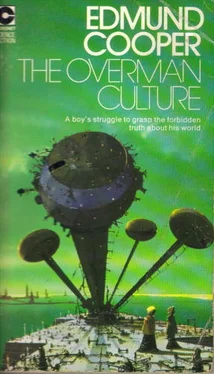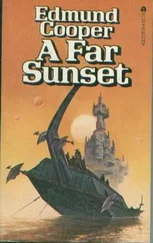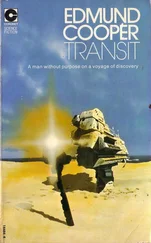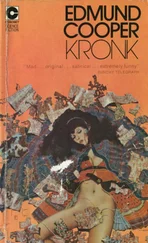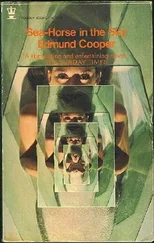Edmund Cooper - The Overman Culture
Здесь есть возможность читать онлайн «Edmund Cooper - The Overman Culture» весь текст электронной книги совершенно бесплатно (целиком полную версию без сокращений). В некоторых случаях можно слушать аудио, скачать через торрент в формате fb2 и присутствует краткое содержание. Город: London, Год выпуска: 1977, ISBN: 1977, Издательство: Coronet Books, Жанр: Фантастика и фэнтези, на английском языке. Описание произведения, (предисловие) а так же отзывы посетителей доступны на портале библиотеки ЛибКат.
- Название:The Overman Culture
- Автор:
- Издательство:Coronet Books
- Жанр:
- Год:1977
- Город:London
- ISBN:978-034017860
- Рейтинг книги:5 / 5. Голосов: 1
-
Избранное:Добавить в избранное
- Отзывы:
-
Ваша оценка:
- 100
- 1
- 2
- 3
- 4
- 5
The Overman Culture: краткое содержание, описание и аннотация
Предлагаем к чтению аннотацию, описание, краткое содержание или предисловие (зависит от того, что написал сам автор книги «The Overman Culture»). Если вы не нашли необходимую информацию о книге — напишите в комментариях, мы постараемся отыскать её.
The Overman Culture — читать онлайн бесплатно полную книгу (весь текст) целиком
Ниже представлен текст книги, разбитый по страницам. Система сохранения места последней прочитанной страницы, позволяет с удобством читать онлайн бесплатно книгу «The Overman Culture», без необходимости каждый раз заново искать на чём Вы остановились. Поставьте закладку, и сможете в любой момент перейти на страницу, на которой закончили чтение.
Интервал:
Закладка:
It was Ernest who invented the generic term for all those children and adults who did not bleed. He called them drybones. It was Ernest also who defined the ones who did bleed as fragiles—because, he said, they could easily be broken. It was Ernest who wondered why all the known fragiles were roughly the same size and probably the same age (the drybones were very evasive about time) and why no one had ever met any very small ones or any very large ones. It was Ernest who first wondered why there was never more than one fragile in any family, who estimated that the proportion of drybones to fragiles was at least ten to one, and who even speculated that London itself might be a world of its own.
It was Ernest who gave Michael confidence in himself and in his reactions, who opened doors in his mind and drew out of Michael’s personality qualities of intelligence and leadership that, in the end, amazed everyone.
They visited each other’s homes and spent a great deal of time in each other’s company. They conducted a systematic campaign at high school for the privilege of learning how to read. Strangely, few of the other fragiles were very interested in learning how to read. Why should they be? There were films, radio and television. There were teachers and parents to answer questions, explain things. And, in the beginning, there were very few books. Which, to Michael and Ernest, made the need for reading seem more urgent. None of the drybones was interested in reading—and this made Michael want it all the more.
High school was a spacious building in King Charles the Third Street, just off the Strand. It housed ten teachers and just over a hundred pupils. The children learned how to paint, sculpt, design and make clothes; how to cook; how to sing, dance, act; how to play football, hockey, tennis, cricket; how to make toys, furniture, ornaments; how to weave; how to make polite conversation with persons of the opposite sex; how to accept the authority and wisdom of adults at all times.
There were no lessons in history, geography, science, mathematics. But sometimes, if one persisted, the teachers would give answers to questions—evasive answers, usually, that prompted more questions. It was easy for the teachers to discourage questions. The fragiles were sensitive; the drybones seemed to have a talent for ridicule. Stupid questions deserved stupid answers.
Michael got used to being an object of ridicule. The laughter did not hurt him. Not unless Emily Bronte laughed with the rest; and that was very rare.
Mr. Shakespeare was the head teacher. He looked very old. He had white hair. Even Ernest could not decide whether he was a fragile or a drybone. He looked, somehow, like an old fragile; but he behaved more like a drybone.
Michael and Ernest were amazed when they finally persuaded Mr. Shakespeare to let them learn how to read. Michael was now nearly as tall as Mr. Shakespeare. He was so excited when Mr. Shakespeare at last agreed to explain about the alphabet and show how letters could be put together to record words that he was tempted to pick the old man up and hug him.
Mr. Shakespeare started the reading program personally. Michael and Ernest were his only pupils. Michael and Ernest were the only fragiles for whom the prospect of reading had become obsessional. When he had identified the letters for them— ay, bee, see, dee, ee, eff, jee —and had given a few simple examples of word construction, Mr. Shakespeare gave each of them an illustrated reader and told them to go away and learn to read. Each was to report back to him when he could read the entire book.
Almost trembling with excitement, Michael and Ernest went away to begin their monumental task. It was left to them to discover that in certain situations one letter could symbolize different sounds and that in some positions some letters symbolized no sound at all, and that combinations of vowels and consonants produced sounds that could already be symbolized by other letters.
It was hard work, it was confusing, at times it was unreasonable. Michael and Ernest soon abandoned the search for a logical system in the construction and representation of words. But they persevered, discovering fragments of a system and learning to make use of those fragments.
The boys were allowed to take their first reading books home. Father thought that Michael’s time could be better spent. Mother was concerned that he should not work too hard. Neither offered to help him.
After tea one day, Michael took his first reading book into St. James’s Park. He and Emily often met in St. James’s Park—chiefly by “accident.” They liked to be together. He had not said anything about loving her for a long time—not, perhaps, since that day ages ago when he had held her hand and they had watched the air raid, and Michael had forgot to fly his kite.
It was a hot summer evening, with the sun still quite high in the sky. Not many people were in the park, but Emily was already there. She was sitting on the grass where they usually sat—the spot from where they had seen the zeppelin fly over London.
Emily was wearing a simple blue dress that buttoned all the way down the front. Recently, Michael had begun to pay considerable attention to the dresses that Emily wore.
“Hello, Emily.”
“Hello, Michael. You have a—a book!”
“My first reading book,” he said proudly. “Would you like to hear me read?”
“You can read already?”
“Some words,” he said. “Only little ones. But it won’t be long before I get on to the big ones.”
“I’m so happy for you,” said Emily. “You wanted to read as far back as I can remember…. Read me the words you know. Point to them so that I can see.”
Michael sat by her side and opened his book. “The cat sits on the mat.” He read slowly but did not stumble. “The cat is fat. He has a red hat. His fur is black. He likes the mat.”
“Wonderful! Wonderful!” Emily clapped her hands. “When you can really read—when you can read everything, Michael—will you teach me?”
He was surprised. “I didn’t know you wanted to read so much. Why didn’t you make a fuss about it at school, like Ernest and I did?”
“I was afraid,” said Emily. “I was afraid of the laughter. You and Ernest didn’t seem to mind.”
“Ernest and I are clowns,” said Michael bitterly. “We don’t mind being laughed at…. I wouldn’t want you to laugh at me, though.”
“I won’t ever laugh at you,” she said with intensity. “I promise.”
Then she lay back on the grass and flung her arms out, gazing at the sky. The sudden movement tore one of the buttons off her dress. Michael glimpsed an entrancing swell of smooth white flesh. A tightness came into his throat. He suddenly wanted to touch Emily. He wanted to touch her, to caress her, very badly.
“Why are people so strange?” said Emily. “Why do they want us to do some things and not do others? Why is there the difference—the difference that nobody wants to talk about?”
Michael hardly heard her. He could bear it no longer. He slipped a hand in the gap in Emily’s dress and let his fingers rest lightly on that deliriously soft flesh.
Emily stiffened and drew in her breath sharply. Then slowly she relaxed.
“I’m sorry, Emily,” he babbled. “I didn’t mean to do that. Shall I take it away? Shall I take my hand away? I wanted to touch you so much. It feels. It feels….” He didn’t know how to say how it felt because he was proud, ashamed, confused, excited and utterly surprised.
Emily remained silent for a moment or two. Michael dared to let his fingers press more heavily.
“I like your hand,” said Emily. Her voice sounded suddenly different. Quite different. “I like it there…. It’s—it’s exciting and very close…. Should we do this?”
Читать дальшеИнтервал:
Закладка:
Похожие книги на «The Overman Culture»
Представляем Вашему вниманию похожие книги на «The Overman Culture» списком для выбора. Мы отобрали схожую по названию и смыслу литературу в надежде предоставить читателям больше вариантов отыскать новые, интересные, ещё непрочитанные произведения.
Обсуждение, отзывы о книге «The Overman Culture» и просто собственные мнения читателей. Оставьте ваши комментарии, напишите, что Вы думаете о произведении, его смысле или главных героях. Укажите что конкретно понравилось, а что нет, и почему Вы так считаете.
